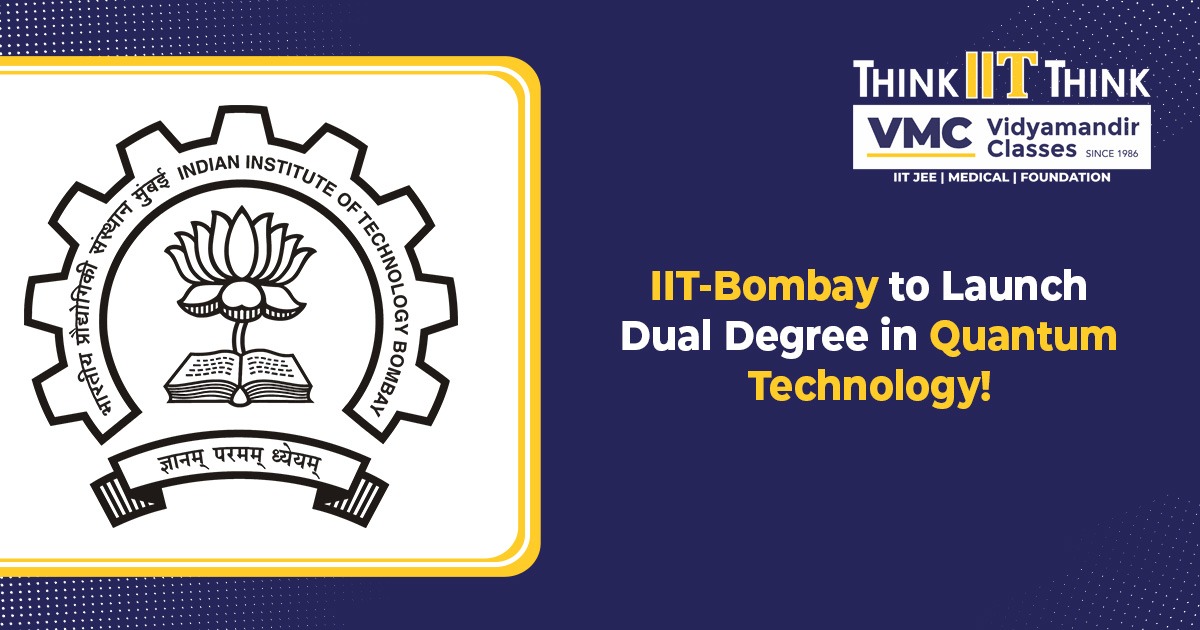IIT Bombay to Launch Dual Degree Quantum Technology Program!
 Posted On
Posted On
705 total views, 1 views today
IIT Bombay is about to introduce an innovative Interdisciplinary Dual Degree Program (IIDDP) in Quantum Technology, giving students the chance to develop expertise in this cutting-edge sector. In order to promote innovation, education, and entrepreneurship in quantum science and technologies, the program will be run by the Centre of Excellence in Quantum Information Computing Science and Technology (QuICST) at the Indian Institute of Technology (IIT) Bombay. This blog post examines the relevance of this new program, the qualifications required to apply, the format of the curriculum, and any potential effects it might have on the quantum technology industry.
I. The emergence of quantum technology:
With the potential to revolutionize a number of industries, including computing, communications, and materials science, quantum technology has emerged as a topic that is quickly evolving. This section explores the essential elements of quantum technology, showing its distinctive characteristics and intriguing potential.
II. Introduction to the Dual Degree Interdisciplinary Program:
The blog gives a summary of IIT Bombay’s future interdisciplinary dual degree program. In order to foster talent, the institute emphasizes that students from any Bachelor of Technology (BTech) branch are welcome to apply for the program. The program’s duration, the curriculum’s specifics, and potential research collaborations with the QuICST are all covered.
III. The Mission of QuICST and Educational Outreach:
The QuICST, led by Assistant Professor Suddhasatta Mahapatra, intends to provide a collaborative platform that combines knowledge from diverse fields to improve quantum science and technology. The center’s goals are discussed in this part, along with ideas for cooperating with other organizations and promoting faculty development through outreach initiatives. It also emphasizes the possible effects of including quantum technologies in engineering and technology colleges’ curricula.
IV. Bridging the Gap: Linking Industry and Science
The National Quantum Mission (NQM) of the Central government is crucial in promoting scientific-industrial research and development in quantum technologies. The goals of the NQM are clarified in this section, along with how the QuICST fits in with those objectives. In order to improve quantum computing, quantum sensing, quantum communications, and quantum materials and devices, it emphasizes the significance of bridging the gap between academics and industry.
V. Quantum technology’s future prospects:
This chapter’s concluding portion looks ahead to India’s use of quantum technology, with the establishment of the dual degree program at IIT Bombay as a key turning point. It examines the advantages that quantum technology might have in resolving difficult problems in the real world as well as the chances that it offers for scientific study, entrepreneurship, and technological growth.
Final Thoughts:
IIT Bombay’s introduction of the interdisciplinary dual degree program in quantum technology is a reflection of the rising acceptance of quantum science and technology as essential forces behind innovation. IIT Bombay is preparing a new generation of experts who will direct this field’s future by giving students the chance to investigate the complexities of quantum technology. The program’s multidisciplinary approach, emphasis on research partnerships, and goals for educational outreach show IIT Bombay’s dedication to promoting excellence and inclusivity in quantum technology education. With the sustained backing of program like the National Quantum Mission, India will be able to advance quantum technology and establish itself as a world leader in this fascinating area of science and technology.



